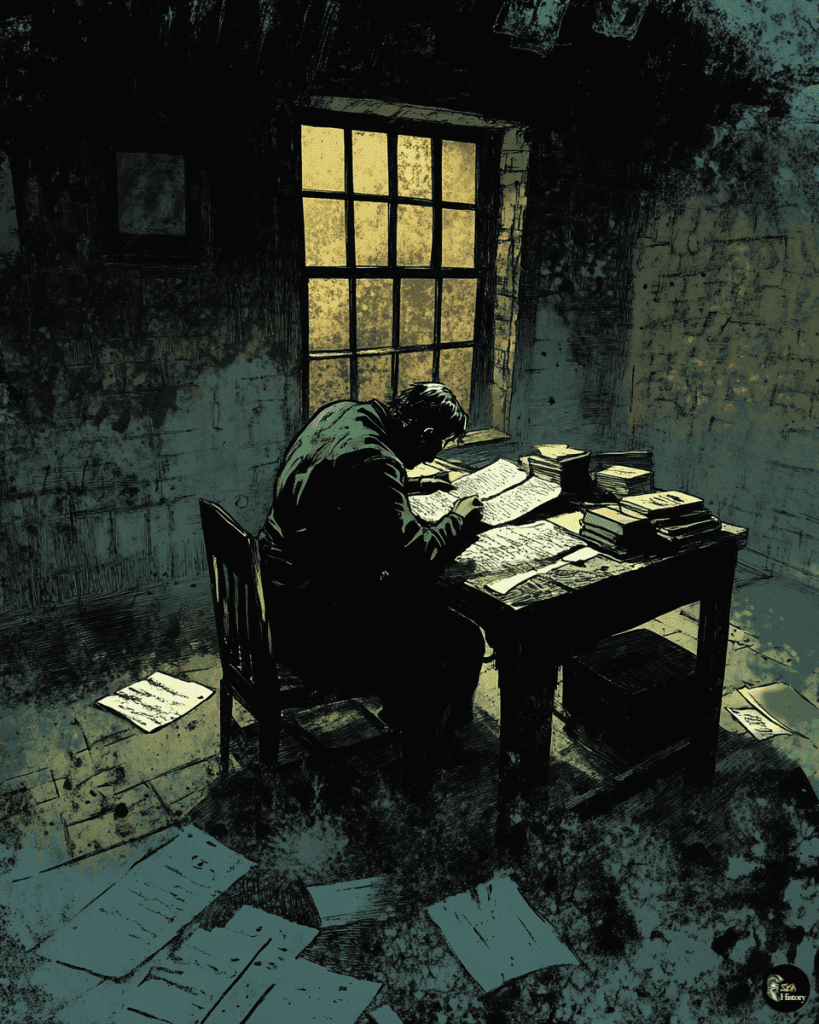In the history of lexicography, few stories are as captivating as that of Dr. William Minor, a man whose brilliant mind was both his greatest asset and his most profound torment. This is the tale of how a patient at Broadmoor Criminal Lunatic Asylum became one of the most prolific contributors to the Oxford English Dictionary (OED). This project would span seven decades and redefine our understanding of the English language.
From Surgeon to Inmate: Dr. William Minor’s Tragic Fall
Born to American missionary parents in Ceylon, Dr. William Minor’s life seemed destined for greatness. A gifted surgeon, he served in the American Civil War, an experience that would leave deep scars on his psyche. As the horrors of war took their toll, Minor’s mind began to fracture, plagued by paranoid delusions and fears of persecution.
In 1872, these delusions led to tragedy. On a foggy London night, Dr. William Minor shot and killed an innocent man he believed was part of a conspiracy against him. Found not guilty by reason of insanity, Minor was committed to Broadmoor Criminal Lunatic Asylum, where he would spend the next three decades of his life.
A Light in the Darkness: The Oxford English Dictionary Project Begins
As Dr. William Minor grappled with his inner demons at Broadmoor Criminal Lunatic Asylum, across the English countryside, an ambitious project was taking shape. In 1857, the Philological Society of London proposed the creation of a comprehensive dictionary that would capture the full breadth and depth of the English language. This monumental task would become the Oxford English Dictionary.
An Unlikely Scholar Emerges from Broadmoor Criminal Lunatic Asylum
Dr. William Minor’s redemption began within the confines of Broadmoor. Allowed books and writing materials, he immersed himself in literature, developing a system for cataloging words and their usage that would prove invaluable to the Oxford English Dictionary project.
When James Murray, the editor of the Oxford English Dictionary, called for volunteers to submit quotations illustrating word usage, Dr. William Minor answered with gusto. From his cell at Broadmoor Criminal Lunatic Asylum, he sent hundreds of meticulously researched quotations each week, becoming one of the dictionary’s most prolific contributors.
A Friendship Born of Words
For years, Murray was unaware of Dr. William Minor’s circumstances, knowing him only through his exceptional contributions to the Oxford English Dictionary. When Murray finally visited Broadmoor Criminal Lunatic Asylum in 1891 and discovered the truth, a unique friendship blossomed. Two men, divided by circumstance but united by their love of language, forged a bond that would last for decades.
The Legacy of a Madman’s Work on the Oxford English Dictionary
Dr. William Minor’s contributions to the Oxford English Dictionary were so significant that he was mentioned by name in the preface to the first volume. Murray once remarked that they could easily illustrate the last four centuries of English language use from Minor’s quotations alone.
Despite his mental decline in later years, Dr. William Minor’s work on the Oxford English Dictionary continued until his return to the United States in 1910. His story is a testament to the redemptive power of intellectual pursuit and the complex nature of the human mind.
The Oxford English Dictionary’s Completion: A Monument to Language and Perseverance
In 1928, 71 years after its inception and long after Murray and Dr. William Minor passed away, the first edition of the Oxford English Dictionary was completed. This monumental work, spanning 12 volumes and defining over 400,000 words, is a tribute to the countless contributors who dedicated their lives to its creation.
Dr. William Minor’s story reminds us that greatness can emerge from the most unlikely places, even the halls of Broadmoor Criminal Lunatic Asylum. He found a light in the darkest corners of his troubled mind – a passion for words that would help illuminate the English language for generations to come.

